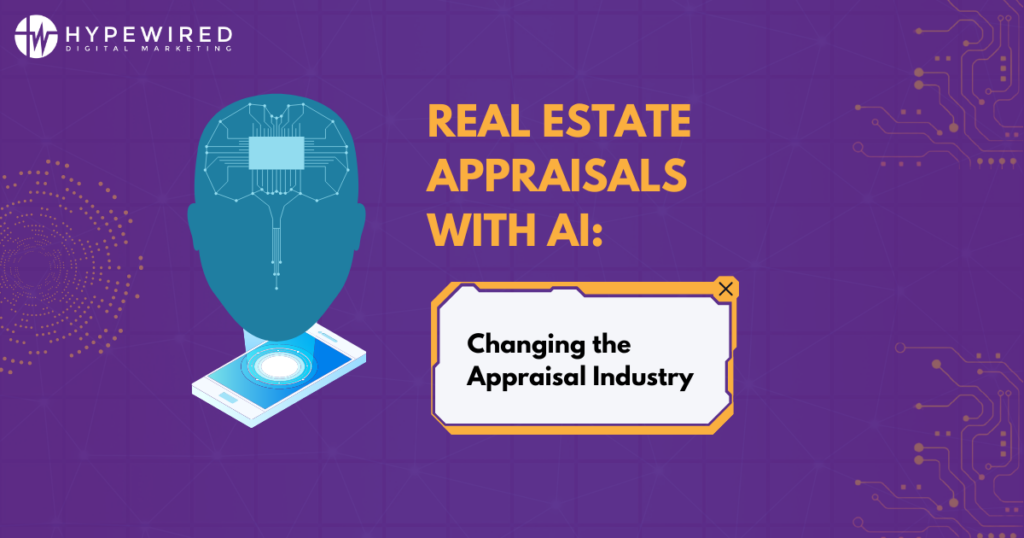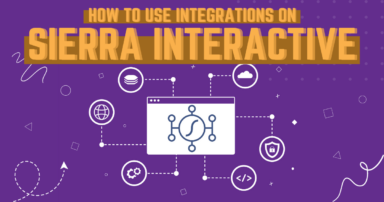Appraisals are a key part of the real estate industry. More than three-quarters of homebuyers finance their purchase, and nearly all lenders require an appraisal before approving the loan. In addition, appraisals are used to fund the local government and public services by determining a homeowner’s property taxes.
Because of their ubiquity—and their impact on people’s wallets—the accuracy of home appraisals is vital. But so, too, is the cost barrier of obtaining this highly accurate data.
Enter artificial intelligence. As technology advances, AI has become increasingly used to reduce labor costs and human error when collecting data for real estate appraisals. But just how game-changing is AI appraisal technology? Is it truly revolutionizing the industry as we know it? What’s the future of real estate appraisers?
Definition Of AI Appraisal Technology
AI appraisal technology is an innovative form of real estate appraisal that uses advanced machine learning algorithms and artificial intelligence technology. This type of appraisal automation offers a new way to accurately assess the value of properties with efficiency, providing more easily accessible insights into current market conditions than traditional methods.
By leveraging automated valuation models (AVMs), AI appraisals can rapidly analyze large amounts of data in order to accurately determine property values faster and more cost-effectively than manual processes.
This revolutionary approach to real estate evaluation has already been adopted by many organizations that recognize its potential for streamlining their operations and increasing profitability. From financial institutions looking to optimize loan underwriting decisions to governments seeking efficient taxation solutions, AI appraisals are becoming an increasingly popular choice among those involved in the industry.
You’ve likely used AI appraisal technology without ever realizing it. Zillow’s Zestimate and the estimated home values you see on Trulia and Realtor.com are well-known examples of AVMs. Even government agencies use AVMs; Freddie Mac, for example, uses their Home Value Explorer to quickly evaluate hundreds of thousands of portfolios and has had decades to update and refine it into a highly accurate machine.
With the ability to quickly identify trends or anomalies within local markets, these systems provide valuable insight that would otherwise be difficult or time-consuming to obtain manually. In addition, they enable users to access reliable estimates without needing extensive background knowledge. As such, AI appraisal technology promises significant benefits for both individuals and businesses alike.
Benefits Of AI Appraisals

AI technology is transforming the real estate appraisal industry in ways that would have been unimaginable in the past. Real estate evaluation is truly a best-case scenario for machine learning—there’s a vast sea of existing data for the AI to learn from and analyze to refine its prediction capabilities.
More Accurate Results, Faster Than Ever
The biggest benefit of AI in the appraisal industry is that AI appraisers can quickly analyze large datasets to estimate property values faster than any human ever could. A human might manually evaluate a property based on several recently sold “comps” with similar features. An AI can rapidly run thousands of decision trees and comparisons against every recent sale in an area to objectively determine the value of various factors in relation to each other, such as location, features, square footage, age, and much more. It can also be trained on a variety of features to tailor its analyses, such as identifying profitable rental properties.
Furthermore, AI can do this in real-time. It can constantly run analyses to ride the constantly changing real estate market trends in a way that human-driven processes simply can’t keep up with. With every new sale and listing, the AI can instantly adapt its data.
Finally, these systems offer users comprehensive automated report generation features that take into account many factors, including geographic location and market trends that influence the worth of a certain property. By providing such detail-rich analysis in record time, AI has become invaluable in making informed decisions about real estate investments.
This means that humans working within the field are able to work smarter by obtaining better data much more efficiently, leading to greater accuracy and less potential for human bias when assessing properties for sale or loan purposes.
Saving Money Through Efficiency
Additionally, because AI can speed up processes so significantly—from searching through records to producing quality insights—businesses stand to save a considerable amount of money on labor costs and access high-level analytics at an affordable price point.
What’s a better use of an appraiser’s time—manually tracking down historical listing records for an entire neighborhood or evaluating a home’s unique features while an initial comprehensive analysis and estimate is being run in the background? Having computers complete tedious, time-consuming parts of the appraisal like searching for existing data and crunching numbers allows the appraiser to focus on the fine-tuning of the end result and complete the final report faster.
In sum, the benefits of using this advanced technology include time savings, improved accuracy, reduced costs, increased efficiency, and more detailed reports.
These undeniable advantages make it clear why AI appraisals are becoming increasingly popular throughout the industry and why they will continue to be embraced going forward.
Challenges Of AI Appraisals

While the potential of AI appraisals is enormous, they’re still only as accurate as the data they’re given. Despite the potential that AI holds for revolutionizing the real estate appraisal industry, there remain challenges to be addressed before they can become widespread.
Machine Learning Bias & Flawed Data
For example, while the sheer quantity of data available for machine learning in real estate is ideal, it’s still possible for machine learning biases to be introduced. ChatGTP, for example, was trained on 570 gigabytes of data and 300 billion words of material, yet unintentionally picked up political biases, as did many other large language models. Because AI appraisers are trained on data originally sourced by humans—not all of which is unbiased—there’s the potential for the AI to work from flawed data.
The complexity of evaluating properties requires a large amount of data accuracy on the individual home being evaluated, which is not always easy to obtain or verify. Historical real estate data may also be incomplete, as not all listing fields are filled out on every listing. Gathering this information increases the human labor cost of the appraisal.
Human Judgment vs. Computer Judgment
AVMs may also overlook some factors, especially somewhat subjective ones such as property condition, and this creates a discrepancy between the estimate and the actual value. Real estate is bought and sold by humans, who are not entirely logical in their motivations and decision-making, and the actual value of a property is determined by what a buyer is willing to pay. Therefore, AI isn’t entirely able to grasp all the nuances going into the final value.
AI is excellent at evaluating quantitative data but is less excellent with qualitative data. Where the computer sees an old house, a human might see historical value and unique architecture and pay accordingly.
| What AI Appraisers Can Do | What Human Appraisers Can Do |
|---|---|
| Compare properties at scale for greater accuracy | Understand subjective features that affect property value |
| Objectively deduce the value of features based on comparative data | Identify flawed data input |
| Update as quickly as the market does | Collect new data input not available digitally and complete/verify existing data |
| Serve as a check against potential human bias | Use AI as a tool to draw more accurate conclusions |
Additionally, concerns over data privacy in regard to AI in general have caused some hesitation among both buyers and sellers regarding the use of AI in appraising property values.
The challenge then becomes finding ways to make AI more accurate, objective, and comprehensive while also being cost-effective and ensuring proper data security protocols are followed at all times. To do this, developers will need to focus on how best to integrate existing technologies and procedures with newer ones, such as machine learning algorithms, so they are able to accurately evaluate properties without sacrificing efficiency or privacy.
How Challenges are Being Overcome
Qualitative evaluations are already being worked on—computer vision in real estate is being pioneered to assist real estate agents in finding properties that meet specific search parameters, including features that may not be recorded in the listing information.
With further research and experimentation in this area, AI could one day overhaul the entire appraisal industry—making appraisals faster, cheaper, and far more accurate than ever before.
How AI Is Transforming The Industry
Ever since AI was first applied to property valuation, the trajectory of the industry has irrevocably shifted. AI enables automated appraisals and digital analysis. This technology provides faster, more accurate results than traditional methods, and AI-powered market analysis offers insights at a scale that was previously unattainable.
In addition to improving accuracy and efficiency, AI can also reduce costs associated with real estate appraisals by eliminating manual labor for certain tasks. With the use of AI-driven algorithms, calculations are conducted quickly and accurately without any human intervention. By automating many processes traditionally performed manually, significant time savings can be achieved while simultaneously increasing the accuracy of the results. Consider how real estate agents are using AI to streamline their businesses—with AI taking over the “grindy” parts of the process, the humans involved can make more efficient use of their time, increasing productivity.
AI-based appraisals have already become an invaluable tool in the real estate industry as they provide quick access to information on current trends in prices and demand in different areas throughout the country. In turn, this helps real estate agents determine competitive listing prices and bids; homebuyers evaluate a home’s affordability; lenders estimate the suitability of a loan; and government entities calculate effective property taxes and mortgage interest rates.
Ultimately, these advancements are transforming how people approach real estate transactions—making them easier and less costly for everyone involved.
Regulatory Considerations For AI Appraisals

While there is certainly potential for increased accuracy and efficiency, it is important to consider the regulatory environment for AI as well.
AI appraisal regulations are still evolving and remain largely undefined, but some key considerations include legal liability, data protection requirements, auditing protocols, and enforcement actions. These measures, as well as existing federal laws, need to be taken into account when developing an AI system for use by appraisers.
Transparency is Paramount
An important aspect of AI regulation is ensuring that the process remains transparent instead of becoming a black box where data goes in and numbers come out. The Consumer Financial Protection Bureau has already declared that if a lender does not understand how the AI makes decisions, they cannot use the AI, as doing so would violate federal laws requiring lenders to specify why a given loan was denied.
Auditing procedures should also be implemented so that these systems can be monitored over time and improvements can be made as needed. It’s essential that compliance standards are met and maintained throughout all phases of development, deployment, and utilization of AI-enabled appraisal services.
Considerations for Potential Harm
Liability concerns must be addressed in order to ensure that any errors or omissions made by the system do not negatively affect property owners or lenders who rely upon appraisals produced with this technology. This includes the potential for machine learning biases, data manipulation, and conflict of interest.
Additionally, companies employing AI systems must adhere to relevant data privacy laws in order to protect sensitive information collected during the process.
Finally, appropriate enforcement mechanisms should be put in place to address any issues related to noncompliance or misuse of the technology. Because of the degree of harm that flawed AI could cause, including significant financial loss to homeowners, homebuyers, and the tax base, ensuring that AI appraisals are fair and nondiscriminatory is vital while promoting innovation within the appraisal industry.
Future Outlook For AI In Real Estate Appraisals
The future of AI in real estate appraisals is very promising. AI has the capacity to revolutionize the appraisal industry, providing speed and accuracy that have never been seen before within this sector.
With the advancement of AI technologies, it is likely that some of the traditional methods used by appraisers will be replaced with automated systems, although there are still several regulatory implications that need to be addressed. Here are three key considerations when looking at the potential impact of AI on real estate appraisals:
- Speed: Automating certain aspects of an appraisal process can dramatically reduce turnaround times while increasing accuracy and reliability.
- Cost savings: By automating manual processes such as report writing, organizations can save money on labor costs and improve efficiency across their entire system.
- Regulatory compliance: As AI technology becomes more popular in real estate appraisals, regulators must ensure that these technologies adhere to existing federal laws and are used in the best interests of those they affect.
Will AI Replace Human Appraisers?
The most likely scenario is that human appraisers will use AI to more effectively do their jobs, to everyone’s benefit. Because of the human element inherent in real estate transactions, it’s unlikely that humans can be entirely removed from the appraisal process. AI appraisers can be used to check human bias in appraisals, while humans can check developing machine learning bias. In addition, experienced human appraisers can factor in the qualitative nuances influencing a particular home’s value to a human buyer.
Ultimately, AI presents a huge opportunity for the appraisal industry to transform its operations through the increased automation and improved decision-making capabilities that the data analyses of AI can provide. This means quicker turnaround times and cost savings over time, resulting in better services for customers seeking property valuations.
Frequently Asked Questions
What Type Of Data Does An AI Appraisal Use?
By utilizing sophisticated machine learning algorithms, AI-based appraisal technology can access and analyze a wide range of data points to provide an accurate assessment of a property’s market value. When it comes to determining what type of data is used in an AI appraisal, there are two key components: property data and market analysis.
Property data includes information like square footage, number of bedrooms and bathrooms, physical characteristics, zoning information, age of the structure, etc. Market analysis incorporates factors such as local housing trends, historical sales data, supply and demand for similar properties within a certain area, projected growth trends, etc. All these factors help determine a more precise estimate of a property’s current value than traditional methods alone.
It is important to note that AI appraisal technology does not replace experienced appraisers but rather enhances their ability to quickly produce more reliable results with greater accuracy. The combination of advanced computing power and human expertise provides clients with up-to-date valuations that take into account all relevant aspects of each particular property, including its location, condition, amenities offered, nearby infrastructure developments and other related factors which may affect its future value.
Are AI Appraisals Accurate?
AI appraisals are becoming increasingly commonplace in the appraisal industry, raising questions as to their accuracy. AI technology is able to quickly analyze large amounts of data, but how reliable and accurate is it? To answer this question, one must first understand what type of data an AI appraisal uses—and, just as importantly, what data it does not use.
AI appraisals use complex algorithms that incorporate machine learning and artificial intelligence to make predictions based on market trends and other relevant factors. Such models can be used to assess property values with remarkable precision compared to traditional methods.
However, even the most sophisticated models have certain limitations; for example, they may not take into account regional variations or unique features of individual properties. As such, users should always consider whether an AI-generated assessment accurately reflects all available evidence before relying upon it exclusively.
The reliability and accuracy of AI appraisals depend largely on the quality of data inputted by the user. If incorrect or incomplete information is fed into the system, then results will be skewed accordingly.
Even when accurate assessments are produced, however, there can still be discrepancies between those generated by a human appraiser versus an AI algorithm due to differences in interpretation or judgment regarding certain criteria. Therefore, users should always exercise caution when using AI-generated appraisals and seek expert advice if needed to ensure their reliability and accuracy.
What Additional Resources Are Available to Learn More About AI Appraisals?
As AI continues to evolve, more and more resources are becoming available to those interested in learning more about AI appraisals.
- The Appraisal Institute releases news about the latest developments in the appraisal industry, including the use of artificial intelligence.
- Similarly, the CFPB newsroom supplies updates on AI regulation in the financial sphere among its other topics.
- The National Association of Realtors has a number of articles on the use of AI in real estate.
- There are also a number of online university courses about the topic, including from Penn State, Cornell, and MIT.
Real estate professionals who understand how these advancements work will not only increase their competitive advantage but also better serve their clients by providing accurate appraisals quickly and efficiently. As AI continues to revolutionize the way we approach valuation services, staying informed on the latest developments should be a top priority for any professional looking to capitalize on this innovative technology.
Appraisals: The Next Industry AI is Assisting In
The use of Artificial Intelligence in appraising real estate has become increasingly popular and is rapidly changing the appraisal industry. AI technology can provide more accurate results than traditional methods while also being cost-effective and fast. Through its ability to quickly analyze large amounts of data from multiple sources and suggest precise values for properties, artificial intelligence presents a powerful tool for those working within the field of real estate appraisal.
As we move further into the 21st century, it is clear that AI will continue to be an integral part of the appraisal industry. Real estate professionals should familiarize themselves with this new technology if they want to stay ahead of their competition. By utilizing artificial intelligence for their property assessments, businesses can increase efficiency and remain competitive in a crowded marketplace.

 September 28, 2023
September 28, 2023



